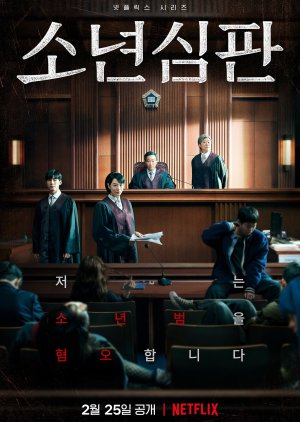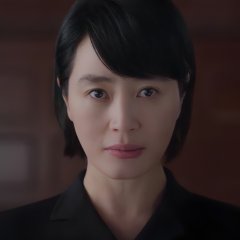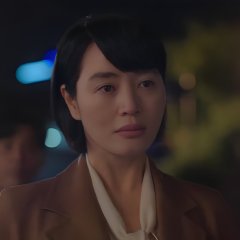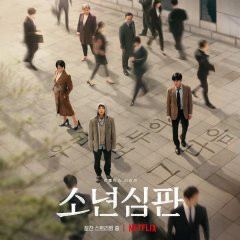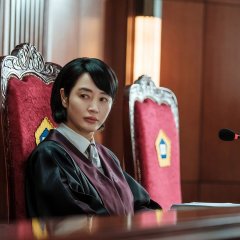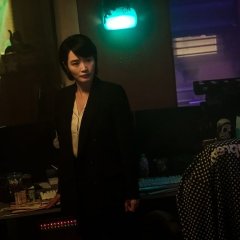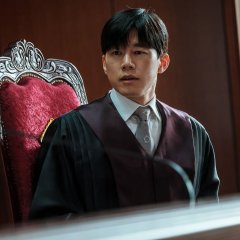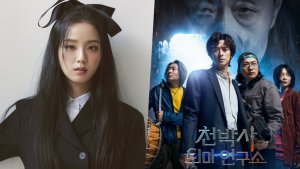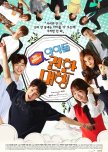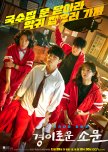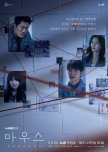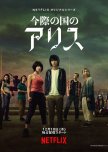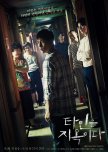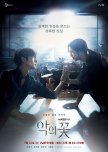 Kim Mu Yeol Decides to Unravel the Mystery Behind the Bizarre Cookie in "High Cookie"
Kim Mu Yeol Decides to Unravel the Mystery Behind the Bizarre Cookie in "High Cookie" O judecătoare dură își temperează aversiunea față de agresorii minori prin convingeri ferme despre justiție și pedeapsă în cazurile ei complexe din tribunalul juvenil. (Sursă: Netflix) Editează Traducerea
- Română
- 中文(台灣)
- Arabic
- Русский
- Titlu Nativ: 소년 심판
- De asemenea cunoscut ca și: Boy Referee , Juvenile Justice , Sonyeon Simpan
- Regizor: Hong Jong Chan
- Scenarist: Kim Min Seok
- Genuri: Lege, Dramă
Unde Urmăriți Justiție Juvenilă
Subscription (sub)
Cast și credite
- Kim Hye Soo Rol Principal
- Kim Mu Yeol Rol Principal
- Lee Sung Min Rol Principal
- Lee Jung Eun Rol Principal
- Lee Sang HeeJoo Yeong ShilRolul de Sprijin
- Park Ji YunWoo Soo MiRolul de Sprijin
Recenzie

My Liberation Notes
74 oamenii au considerat această recenzie utilă
The Effects of Juvenile Delinquency And the Role Society Plays
From its opener, this drama came out swinging, and it didn't stop to the end. I had high expectations, and I am glad it didn't disappoint. I thoroughly enjoyed this drama, everything from the overwhelming storytelling and cases to the cinematography, directing, and especially the acting of the leads and the supporting cast. Both Kim Hye Soo and Kim Mu Yeol were outstanding, and complimentary of each other. Her strong stance on punishment and his clear belief in nurturing and reform completed each other in many ways. It was almost like when she ran cold, he warmed her up, and when he threatened to go cold, she found a way to warm him up. Their personal traumas helped me understand their stance and shaped the story.What I like most about this drama is how daringly it tackled the complex and staggering psychological and social circumstances surrounding juvenile delinquency, the juvenile court system, and the effects it has on the victims, the juvenile delinquents themselves, their families, and even society as a whole. The thought that the stories it tells maybe someone's real life reality is heartbreakingly crushing. Right after I watching Juvenile Justice I read a review that described the script as "having a tendency to devolve into preachy monologues, which did a disservice to the drama". I was utterly surprised, because I thought those preachy parts were precisely what made the drama so impactful, given the heavy subject matter.
As much as I enjoyed the drama, some episodes were hard to watch, almost cruelly so, especially how desensitized society has become to the pain and injustice of others. The drama was thought provoking. It made me question myself and how I would react to the many uncomfortable situations. I have a newfound respect and admiration for juvenile delinquent judges, counselors, social workers, and everybody who works with and around children. I don't think I could do it. The whole time I watched the drama, I kept thinking that when parents cover up for their children's wrongdoings, are they doing it for their children or for their own sake? I also couldn't stop thinking how children as young as nine could be so disconnected from their community and society that they could commit such atrocities; where and how does it go wrong, be it with the children, the parents or society. A lot to ponder.
I am not a parent, but I know it isn't easy. As an aunt actively involved in raising my nieces and nephews, I know how important it is for children to know that they are loved unconditionally, particularly when they make mistakes because everybody make mistakes. But they also need to those mistakes have consequences, especially when they cause harm to others. Parents sternly disciplining their children is the tough love they need. It's far more helpful in the long run than covering up those mistakes, no matter how bad. And this is especially important in a country like South Korea, where society plays a big role in shaping its citizens, that it becomes part of the solution, not a contributing factor. I wonder if I sound preachy, hmmmm!
Juvenile delinquency isn't just a legal issue that can be taken care of by law, but a major social problem that requires urgent attention. I pray this drama in its ten episodes succeeds in casting the needed attention, and more importantly, to relay the message that punishment shouldn't only be about imprisonment, but also development and reform. As Shim Eun Seok says in the drama, it takes a village to raise a child. It's why we still need the "village" strengthening support mentality for our children today. Is Juvenile Justice a perfect drama; perhaps not, but it does a darn good job expressing how the inadequacy of the criminal and judicial justice system, the breakdown of the family unit, particularly parental guidance, and resulting trauma as well as societal neglect exacerbate serious youth crimes. Yes, reforming juveniles is paramount, but their victims matter too and shouldn't be marginalized in the process.
Considerați utilă această recenzie?

Această recenzie poate conține spoilere
The Bad Kids
Juvenile Justice is a character-driven legal thriller revolving around Shim Eun Seok and her appointment as a judge of the Juvenile Criminal Settlement Division of the Yeonhwa District Court. Her profound hatred of juvenile delinquents provides the backdrop of her approach to dispensing justice upon the minors charged in the court of law as she presides over a variety of deeply complicated and convoluted cases.The drama is rated R-18 in South Korea due to references to drugs, suicide, physical and sexual violence. Elements of social commentary are present that explore the judiciary statutes, investigative authority, politics and education system. The complexities of the human drama is provided by the respective backstories of the juvenile offenders in terms of their difficult family backgrounds and dynamics, as well as the suffering endured by the victims and their own families.
The screenplay is written by Kim Min Seok for what is his first drama project. Although credited as an original screenplay, it purportedly draws parallels to several high profile cases that have occurred recently in South Korea; the 2017 kidnapping-murder case of an elementary school student in Incheon, the 2018 Sookmyung Girls' High School test paper leak in Gangnam, the 2020 Daejeon middle school student rental car theft accident, and the 2018-2019 Incheon Metropolitan City sexual assaults.
Directed by Hong Jong Chan with Kim Tae Sung (Happiness, Snowdrop, Inspector Koo) serving as composer. Principal photography took place in May 2021 primarily at Jeonju District Court located in Jeollabuk-do, which serves as the Yeonhwa District Court. Other filming locations include Dongseong-ro Spark in Daegu, Dongseong-ro Spark and Misa High School in Gyeonggi-do, and Seoul Women’s University.
What I Liked
There are three main aspects that have impressed me immensely.
Firstly, high praise goes to the overall production values, specifically the mood-inducing cinematography that establishes the noir vibe to the entire visual tone of the production. This fits perfectly to a narrative that delves extensively into the dark subject matter of violent crimes, together with the slow burn and gritty storytelling approach. In fact, a huge portion of the drama takes place at night where one of the more memorable moments included snowfall in its scenes. I’ve also enjoyed the framing of Shim Eun Seok’s contemplative moments in her office through low-key lighting that accentuates the evocative atmospherics throughout the story. There’s no question that a lot of money went into this production and it is apparent for all to see.
Secondly, the exceptional acting in this drama. Particularly Kim Hye Soo’s portrayal of the lead character, Shim Eun Seok. This is quite possibly her strongest performance in recent memory which I believe surpasses her role of Jung Geum Ja in Hyena and perhaps aided tremendously by the characterization that feels very much designed with her in mind. This is the epitome of intensely hard-boiled and ultra bad-assery without so much as breaking a sweat. The emotive expressiveness of her unflinching piercing gaze that punches right through any suit of armour is as intimidating as it is effective.
Other members of the cast that impressed me would include Lee Sung Min as Kang Won Joong, the Chief Judge of the Juvenile Criminal Settlement Division of the Yeonhwa District Court. Initially giving the appearance of the typical annoyingly loud and abrasive boss, he gradually settles into this extremely layered and grey character who is torn between his personal ambitions and protecting his family.
I also have to mention Lee Yeon. My first time seeing this 27-year old lady in what is truly an incredibly remarkable yet unsettling depiction of an extremely unhinged teenage boy! It’s the kind of performance that leaves an indelible imprint in your psyche for years to come. The drama also features a number of familiar faces in the supporting roles including Lee Jung Eun as Chief Judge Na Geun Hee, and Kim Mu Yeol (currently in Grid) as Division Judge Cha Tae Joo. Yeom Hye Ran (The Uncanny Counter), Yoo Jae Myung (Hometown) and Kim Joo Heon provide noteworthy guest appearances.
Thirdly, I was captivated by the intrigue of certain cases. Going into this drama I was anticipating a more “common” or “garden-variety” type of crime committed. After all, how much trouble could kids really get into, I thought to myself. Well, I was proven very wrong because some of the crimes manifested belong to the psychologically disturbing and immensely macabre category. The one that caught my attention from the get-go has to be the first case while the second case provided a fascinating insight into juvenile rehabilitation facilities.
What I Didn’t Like
My biggest issue is with the screenplay. I think Kim Min Seok was trying to weave too many themes and sub-plots into a 10-episode production, most of which finally play out in the final 2 episodes. I can’t say for sure if this drama is merely providing social commentary or perhaps the screenwriter is attempting to convey a statement or message that raises public awareness. Or it could simply be heavily dramatized fiction that’s intended to wow (or shock) viewers.
Whatever the case may be, the end product becomes something of a contradiction for me. It’s not ok for other people to abuse their authority but when it comes to the protagonist, it’s perfectly fine. It’s not a big deal for other cases to reach a dissatisfying conclusion but when it involves the lead’s tragic backstory, then justice must be fully administered at all costs. Judiciary bosses with years of experience are a bunch of noobs in comparison with the junior judge for they do not comprehend the spirit of justice, which justifies acts of insubordination. Finally, that sense of self-righteousness and moral high horse that comes complete with the speech gets repeated several times, only to be refuted by hypocrisy when convenient.
My interest in the second half kind of waned because the focus was lost amidst the tonal shift of the narrative, firstly to the politics of education and by-election campaigning, then finally to Shim Eun Seok’s complex backstory. This aspect wasn’t properly fleshed out but instead given the brief flashback sequence, alongside elements that eventually become inconsequential in the form of the ex-husband and mother-in-law who contributed nothing of significance apart from melodramatic angst.
Final Thoughts
The biggest positive for me is Kim Hye Soo’s performance which I hope would garner her at least a nomination for this year’s Baeksang. Juvenile Justice ended up being a mixed bag for me but all things considered, I would recommend this drama predominantly for the well executed technical aspects rather than the plot trajectory and didactic social critique.
Considerați utilă această recenzie?

